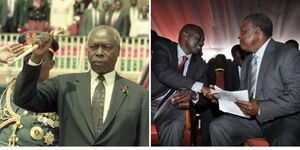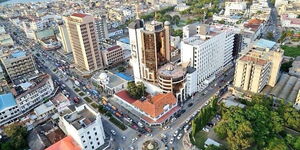The government is currently facing uncertain credit market conditions, raising fears that Kenya could default on its Ksh297 billion Eurobond.
While President William Ruto has repeatedly reiterated that Kenya will adhere to its international debt obligations, the administration has started exploring backup plans to ensure that Kenya services the Eurobond upon its maturity in June 2023.
Central Bank of Kenya (CBK) Governor Kamau Thugge, on Wednesday, October 4, stated that the government was engaging lead managers and advisors to strategise repayment of the bond.
One of the ways that the government can mitigate the risk of default is to borrow more from the international market with an eye on concessional external loans. Concessional loans have below-market interest rates and offer grace periods too.
“We are talking with multilateral institutions, with the World Bank and the International Monetary Fund (IMF) to see how much additional resources they can make available to us,” Thugge stated.
Additionally, the Treasury will also seek help from regional development institutions to repay the debt.
Thugge explained that despite the unfavourable market conditions, the Treasury was optimistic of repaying the Eurobond.
“We do expect that between now and June, we will progressively reduce the liability of the Eurobond so that by the end of June, if necessary, we will be able to use our international reserves to make sure that there is absolutely no doubt the government is able to pay for the Eurobond and take that liability,” Thugge assured Kenyans and international investors.
Treasury Principal Secretary Dr. Chris Kiptoo, in March 2023, stated that Kenya may also strengthen the maturity profile of public debt through the issuance of medium to long-dated bonds and deepen the domestic debt market to be able to finance more budget deficits and cut reliance on external sources.
However, the government is racing against time to repay the bond, an issue compounded by high global interest rates and Kenya's shrinking dollar reserves.
In June, Ruto announced that Kenya, as part of its strategy to settle external debt, would buy back half of the Ksh297 billion Eurobond a year before its maturity date.
Moody's Investors Service, a global credit rating firm, warned that such a move would be considered a default should it be effected.
Moody’s labelled Ruto’s plan as a "distressed exchange," - a situation where creditors incur economic losses, and the transaction enables the issuer to avoid a likely eventual default.
Ruto fired back, stating that the agency was exploiting Kenya, but he later retracted and agreed to pay the debt upon maturity in June 2024.
A Eurobond is a debt instrument denominated in a currency other than the home currency of the country or market in which it is issued. The Kenyan bond was issued to investors across Europe and the US and is denominated in US dollars.
Financial experts add that a bond can be viewed as a promise that an investor will be repaid their debt (loan made to the borrower) at a later date and at a certain interest rate.












